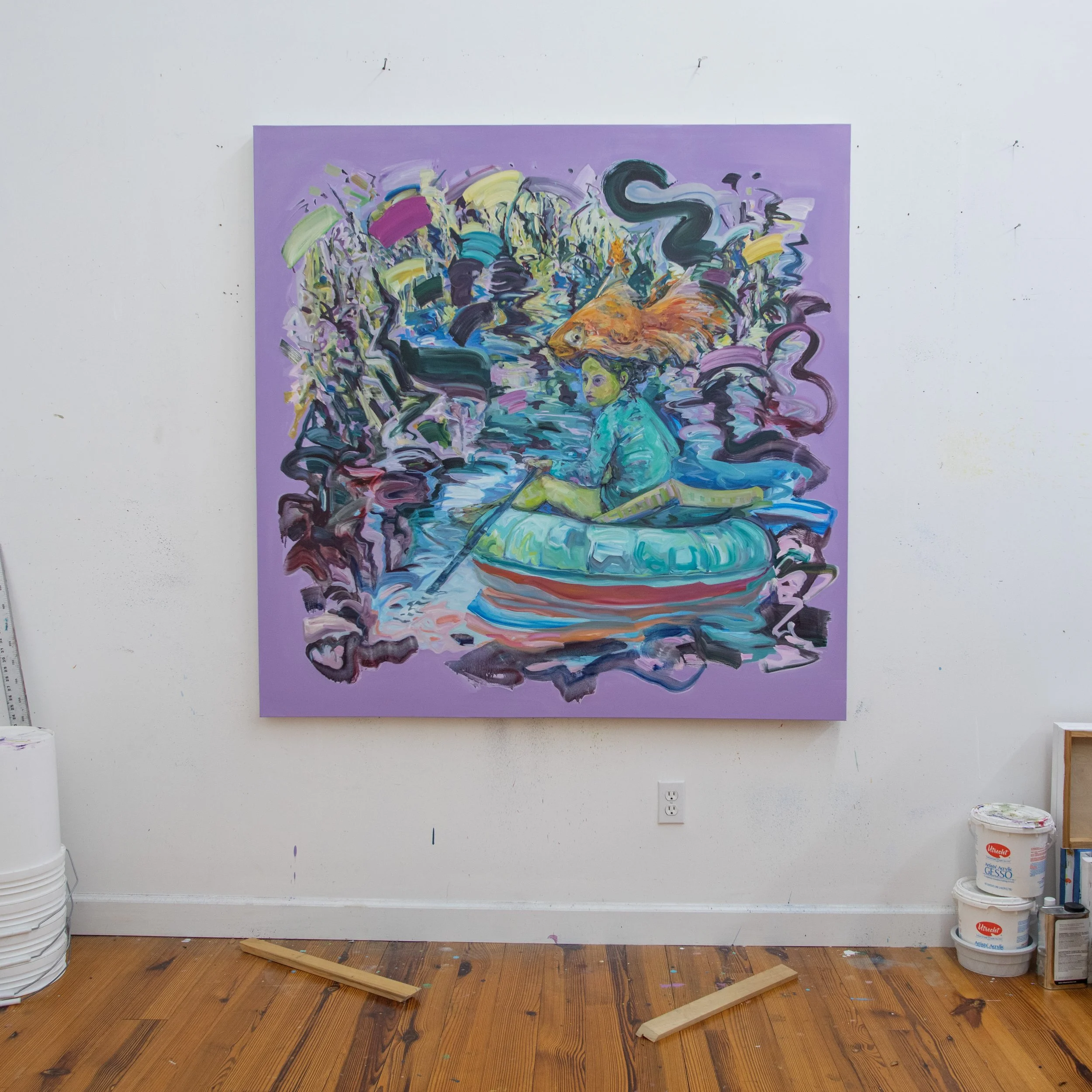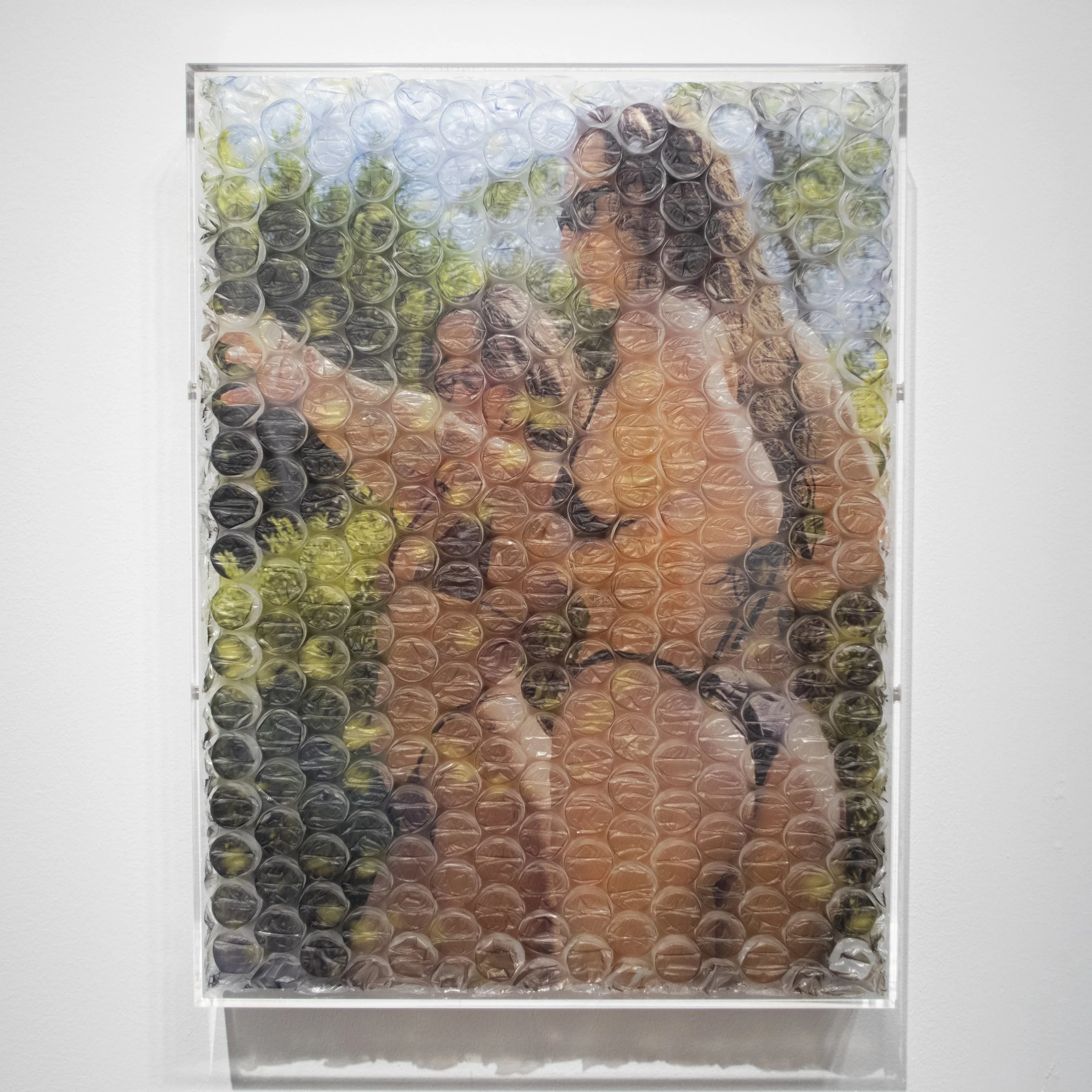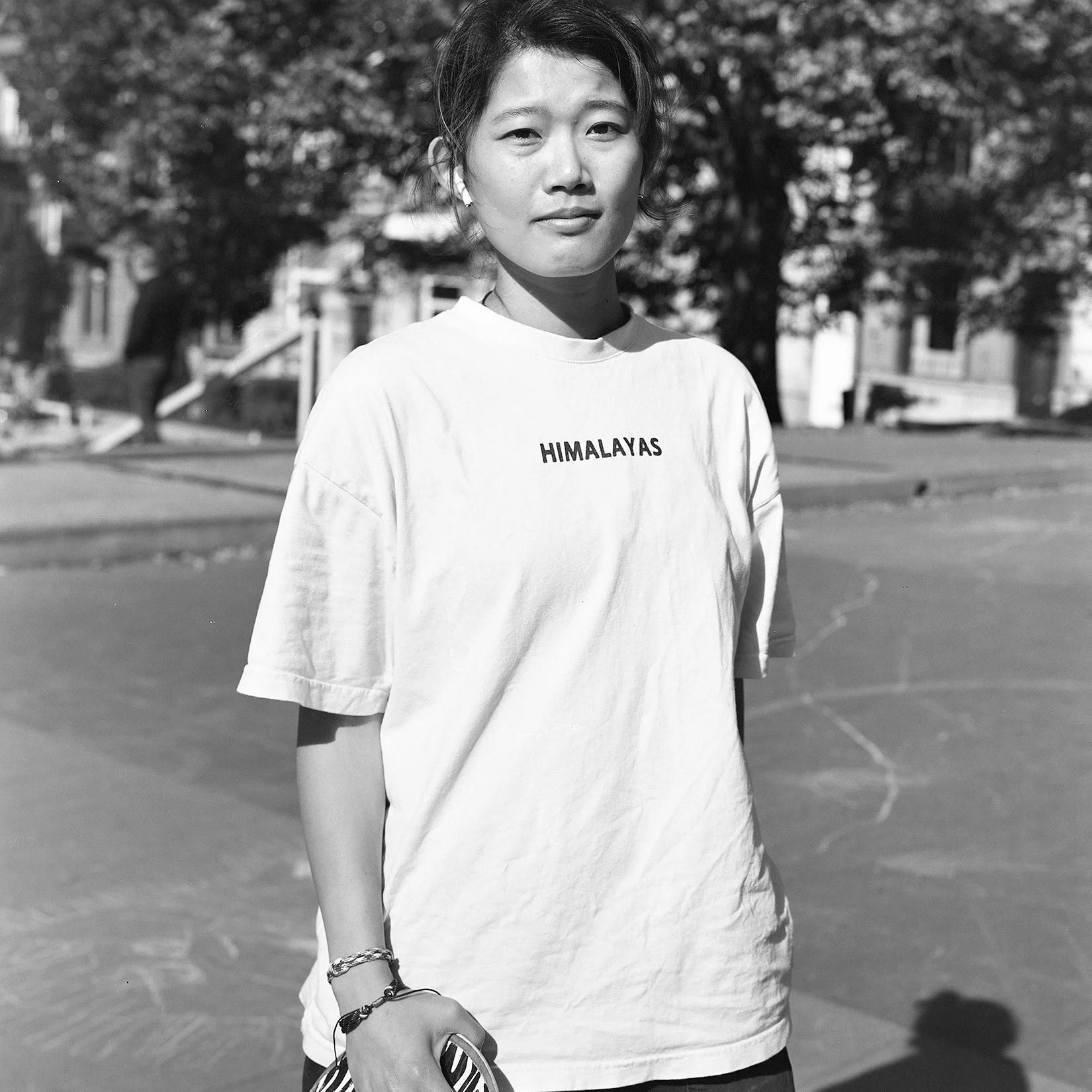Interview with Dolores Coe
Dolores Coe is a painter from Ruskin, Florida. Her world of inverted colors and artificial saturation is a psychedelic reality that has previously depicted found scenes and fake animals, and her new series focuses on the experience of the COVID kids. The paintings aren’t so dissimilar from our backward, upside-down society.
Honoring the Messy Beauty of Motherhood
The label is so strong, that a woman is often reduced to little more than her maternal duty in the public and private eyes. In “The Mother and… Project” at Kansas City’s Leedy-Voulkos Art Center, curators Eleanor Lim-Midyett and Courtney Wasson decide to restore the three-dimensionality of the flattened matrons by presenting them as living, musing, inspiring human beings: the artist-mothers.
NADA Miami ‘25
For viewers, art fairs are great opportunities to see contemporary art from around the world. It’s a time to discover something new. That’s why the New Art Dealers Alliance is so interesting. Unknown and up-and-coming artists, entrepreneurial dealers and curators, enthusiasts-turned-collectors; everyone’s full of energy.
Soft Sell
Soft Sell, by Kayla Tange, currently on view at Last Projects in LA, displays the heaviness Tange has experienced as an adoptee, sex worker, and person with chronic pain. Tange sat down to discuss the internal connections and conflicts she longs to make sense of with her solo exhibition.
Life Otherwise
Proxima Kósmos explores the intersection of science, technology, art, design, and science fiction and radically imagines an alternative solar system using existing scientific theories, models, and speculations. The result is nine alternative versions of Earth—nine possibilities of what our world could have been.
Les Friches
Sloan Laurits uses an 8x10 camera to photograph people as they really are. His current project of taking portraits of local skateboarders in Brussels, Belgium, where he currently lives, is being shown in a DIY exhibition called Les Friches.
The Mythical Order
Ibuki Kuramochi is a Japanese dancer and performance artist living in Los Angeles. Trained in Butoh, Kuramochi’s style mixes mysticism, sensuality, and the macabre. Videos and performances display themes of the body and motherhood by representing childbirth interplayed with allegories for non-binarism.
Through A Digital Fence
Jolene Lower’s collaboration with Cristina Szyszko and Amy Wolf titled shoegazers versus mouth breathers; shirts vs skins (2025) is an amalgamation of the chaos and loathing of modern day media. It’s a hypnotic, neon-patterned installation paired with a video monitor where, if you listen closely, you can hear the confessions of the 4 AM thoughts that creep into your consciousness after scrolling mindlessly at your screen for too long.
Sublime Capricci
Skinner + Skinner, recently on view at The Morean Arts Center in downtown St. Pete, was a father-son exhibition of hope. Arthur Skinner exhibited small, detailed pencil drawings of imagined landscapes and autobiographical silver-gelatin abstractions alongside Joe Skinner’s etchings of religious icons made from discardable lottery tickets.
I Want You To Know My Story at The Ringling Museum
Jess T. Dugan’s I Want You To Know My Story at The Ringling Museum is an exhibition of portraits where the subjects look at us. It consists of several color photographs and two videos that represent the spectrum of gender and sexuality with realism. It’s an exhibition of love and being seen.
The Subversive Eye at The Dalí
The Subversive Eye, now on view at The Dalí Museum, is a large exhibition of Surrealist photography from the 1920s and 30s that includes some of history’s most notable artists. It’s curated from the David Raymond Collection which curator Dr. William Jeffett characterizes as emphasizing photographs from history that were printed at the time of their creation.
Interview with Cahill Van As
MesDames: Made in Nièvre by Cahill Van As, recently on view at Espace Usanii in Nevers, France, exhibited portraits of local women entrepreneurs. By including varying perspectives of each subject in the exhibition, Van As creates a collective portrait of what it’s like to be a boss in the workforce.
Interview with Aaron Carnes
In Defense of Ska by Aaron Carnes is an entertaining take on the story of third-wave ska. It’s written with the wit and sarcasm indicative of the movement, and it’s being released in an expanded second edition by CLASH Books.
Working Conditions at The Ringling Museum
Working Conditions, recently at the Ringling Museum of Art, consisted of photographs that depict how work has changed over the past two centuries. Black-and-white images of gold and coal miners from the earliest days of photography begin a narrative that culminates with drab cubicles and colorful images from the tech industry.
Interview with Jessica Todd
Parachute Gallery’s Summer School is an exhibition celebrating the books that are currently banned in Florida’s classrooms. Parachute’s founder, Jessica Todd, organized the exhibition with Victoria Alvarez, as a response to censorship.
Visible Time at USFCAM
Rico Gatson’s Visible Time at University of South Florida’s Contemporary Art Museum is an exhibition of collages, abstract paintings, kaleidoscopic videos, and a monumental mural. Energetic portraits depict influential advocates of racial justice, musicians who’ve changed the cultural landscape, and actors that have paved the way for equal representation.
Interview with Kirk Ke Wang
Kirk Ke Wang’s Snow in September is an exhibition of abstract, mixed-media paintings based on images from the September 11th, 2001 World Trade Center attacks. The title of the exhibition refers to a play from China’s Yuan Dynasty about injustice where a woman is wrongfully sentenced to death for an offense she didn’t commit.
Interview with Libbi Ponce
Libbi Ponce is a sculptor and installation artist who uses 3-D imaging, sheet metal, and found foam to create experiences on-screen and in the gallery. Their art draws inspiration from Pre-Columbian artifacts, and serves as memories from the Ecuadorian diaspora.
Interview with Heather Augustyn
Heather Augustyn’s Women in Jamaican Music tells the history of influential women in an industry that’s dominated by men. Its in-depth research paints a portrait of the time, and its personal interviews let the musicians and businesswomen speak in their own voices.
The Right to Swim
Vivia Barron’s exhibition of paintings at the Dr. Carter G. Woodson African American Museum titled, The Right to Swim, depicts the beaches of Saint Petersburg in the welcoming way that she remembers from her childhood in Jamaica.
Interview with Mladen Bizumic
Mladen Bizumic, PhD is a Vienna-based artist who creates installations that manifest photography’s social relations. Merging analog with digital media, his installations serve as entry points for discussions about photography’s form, and the economic structures that perpetuate the photography industry.
Ah Who Run Dis at SPAACES
Krystle Lemonias is a Jamaican-American artist working with fiber-based materials and video installations. Ah Who Run Dis at SPAACES Gallery is an exhibition of her recent works that deal with themes of domestic work, family dynamics, and the immigrant experience.
Interview with Dakota Gearhart
Dakota Gearhart is a Brooklyn-based artist who creates video art and installations. Gearhart’s Life Touching Life is a psychedelic journey through the digital world led by a hostess named Tiffany. It’s an existential artwork that critiques pollution and the military-industrial complex which has produced many of our household technologies.
The Baby-Faced Killer
Lydia Lunch’s music, poetry, and video works center around themes of misogyny, sexual abuse, and the patriarchy. Lydia Lunch: The War is Never Over is a documentary about the artist’s life, and her creative influences. It’s a diary of how she continues to machete her way through society.























